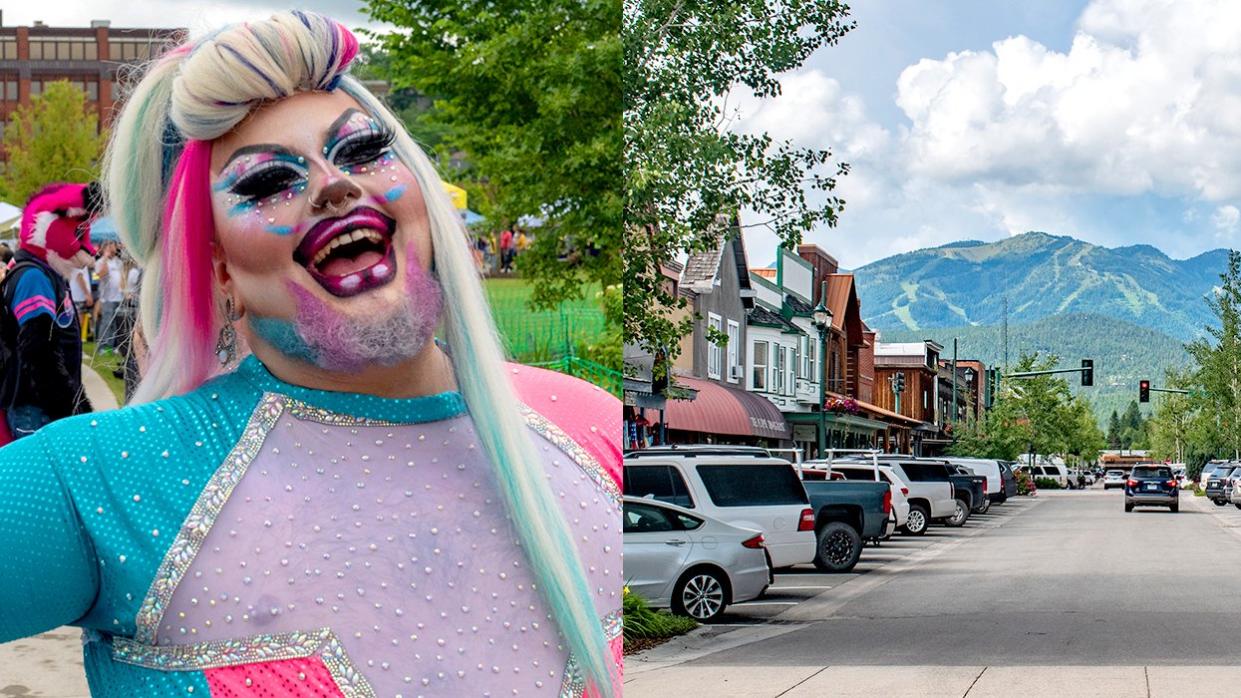Montana's Drag Show Ban Still Blocked in New Court Ruling

A federal judge on Friday extended his stay on Montana’s controversial ban on drag queen story hours in schools and libraries. H.B. 359 was passed earlier this year and bans minors from attending all drag performances. The law was challenged in court by a collection of performers, activists, and businesses who claimed they had been harmed by the ban, which they believe is unconstitutional.
U.S. District Court Judge Brian Morris on Friday continued his stay, finding the state had presented no evidence to show that children would be harmed by watching a drag show. The stay only prevents the law from taking effect as the case continues in court, but Morris harshly H.B. 359 and its backers in his decision, in effect calling their case baseless and highlighting how the law negatively impacts the greater LGBTQ+ community.
“State Defendants presented no evidence before the Court to indicate that limiting children’s exposure to speech and expression critical of gender norms or by gender non-conforming people bears any relationship to promoting children’s welfare,” Morris wrote in his 54-page ruling, but instead relied “largely on statements by members of the Montana legislature and witnesses at the hearings on H.B. 359.”
He also wrote the law targeted “protected speech and expression.”
Republican Gov. Greg Gianforte signed House Bill 359 into law in May. The law took effect immediately and was the first state law to ban drag queen story hours entirely.
The stay was first granted in July after the plaintiffs complained it would force the cancellation of the upcoming Helena Pride celebration. The stay allowed the annual event to continue.
The plaintiffs include Adria Jawort, a transgender Native American woman whose speech on LGBTQ+ and Two-Spirit history at the Butte Public Library was canceled, teacher Rachel Corcoran who provides lessons to children while presenting as costumed male and female historical and fictional characters, the Montana Book Company, and other business and venues impacted by the ban including the Myrna Loy Theater, BumbleBee Aerial Fitness and the Imagine Nation Brewing Company. The Imperial Court of the State of Montana, a drag group; the Western Montana Community Center, an LGBTQ+ center in Missoula; and the Great Falls LGBTQ+ Center are also plaintiffs.
Morris wrote the foundation of the state’s justification for the new law relied on a “conflation of sexual abuse with exposure to sexual orientation, gender identity, and gender expression,” rather than any actual harm or threat of harm to children.
“The conflation of gender and sexual minority identities with child sexual abuse or ‘hyper-sexualization’ contributes to the marginalization of LGBTQ+ people,” Morris wrote.
The plaintiffs had argued the new law contained “numerous vague and overbroad definitions,” and the judge agreed. Morris found Montana had failed to provide adequate definitions for “lewd and lascivious,” “flamboyant or parodic [gendered] persona,” “glamorous or exaggerated costumes and makeup,” “salacious dancing,” “sexual manner,” and “presence of an individual under the age of 18,” among other.
The Montana Department of Justice told the Montana Free Press the case was still in the early stages and that the state was still weighing its next steps.
“This is a preliminary matter at this point,” Emily Flower, press secretary for the department, told the Free Press via email. “We look forward to presenting the complete factual and legal argument to defend the law and protect minors from sexually oriented performances.”

